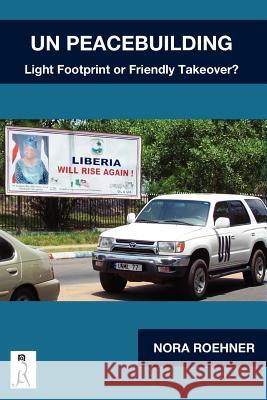UN Peacebuilding - Light Footprint or Friendly Takeover? » książka
UN Peacebuilding - Light Footprint or Friendly Takeover?
ISBN-13: 9781479102280 / Angielski / Miękka / 2012 / 248 str.
This book investigates efforts of the international community to keep peace and rebuild states after these have overcome internal war. Over the past 20+ years, UN peace missions have gradually become more ambitious, with an increasing number of military and civilian peacebuilders on the ground who take on a wide range of responsibilities. Contradicting calls for ever more international commitment to post-war countries, the author argues that more of everything is not in all cases the appropriate approach and does not necessarily produce better outcomes in terms of security and statehood in war-torn countries. The uniqueness of this study is that it puts mission intrusiveness into perspective. It finds that what matters is the context in which UN peace missions are deployed, specifically the intensity of the previous war, the local demand for peacebuilding, and level of socio-economic development. Deployed in unfavorable contexts, highly intrusive peace missions can actually do more harm than good, while 'light footprint' missions can be very successful in favorable contexts. The study provides empirical evidence for these findings by conducting a thorough statistical analysis of 22 UN peacebuilding missions. To validate the results of the statistical analysis, case studies of Kosovo and Liberia look at the interaction processes between international and domestic actors to explain peacebuilding success or failure. This piece of work makes an indispensable theoretical and empirical contribution to the current debate on the effectiveness of external interventions after civil war and on appropriate peacebuilding strategies.
Zawartość książki może nie spełniać oczekiwań – reklamacje nie obejmują treści, która mogła nie być redakcyjnie ani merytorycznie opracowana.











